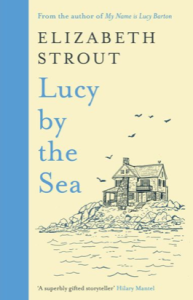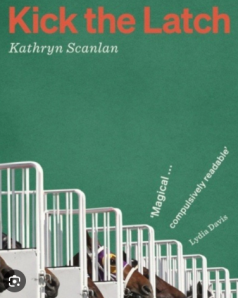
I’ve always liked the idea of #ReadIndies but was never able to participate. This year, the hosts, Kaggsy and Lizzy, are focusing on micro publishers, publishers, with five employees or less. That said, one doesn’t have to choose from those. Any independent publisher counts. I had far too many choices and finally decided to opt for a micro publisher because I have far less titles from those. Rónán Hession’s novel Leonard and Hungry Paul, a book I’ve been meaning to read for ages, has been published by Bluemoose Books.

Leonard and Hungry Paul tells the story of two unusual friends. At the beginning of the novel, Leonard who is in his thirties, loses his mother with whom he has been living until now. He feels a great loss as his life is very uneventful. He works as an encyclopaedia ghost writer and other than Hungry Paul, he has no friends or relatives. Hungry Paul, too, still lives with his parents. He doesn’t seem to work much other than helping at the post office. Unlike Leonard, he has other relatives, one of which, his sister, is getting married soon.
In the evenings, Hungry Paul loves to play board games with Leonard or, if he doesn’t come around, with his parents. Their lives are full of small rituals that they enjoy enormously. They are also both interested in almost everything and can discuss many topics at length. The death of Leonard’s mother and Grace’s wedding seem to put things into motion because suddenly there are so many changes in both of their lives.
Leonard and Hungry Paul is a gentle, joyful book about two outsiders and loners who seem to know much more about finding happiness in life than more conventional people. Especially Hungry Paul, whom his sister calls “the sage” sounds often like a Buddhist teacher and Paul is no less wise.
A book like this could very easily have been too saccharine or bland but it isn’t. The style is so witty and humorous, it’s an absolute joy to read.
Here are just a few examples to give you an idea.
Leonard was not exactly sure, but there must have come a point when their relationship (with his mother) grew from a purely filial one into one of partnership. Though an adult son living with his widowed mother is a situation about which society has yet to adopt a formal position, it is clearly seen in second-best terms.
Had he had the courage Leonard would have spoken up and said that his mother looked after everyone in her life as though they were her garden birds: that is to say, with unconditional pleasure and generosity.
The two friends then settled into one of the long pauses that characterised their comfort in each other’s company. They could sit quietly for extended periods without the need to hurry back to whatever it was they were doing, allowing the silence to melt away in its own time. However, on this occasion, Hungry Paul’s extemporising on astrophysics had struck a melancholy note inside Leonard. In the week since his mother had passed on, Leonard had noticed a distinct shrinking of his own personal universe. His evenings were less occupied, his social options had become more limited, and his mind seemed diverted inwards towards a vague, dreamy melancholy.
Hungry Paul had been blessed with a mental stillness which had become his natural state over the years. His mind worked perfectly fine and he had all the faculties of a healthy, if slightly unorthodox, man of his age. He just had no interest in, or capacity for, mental chatter. He had no internal narrator. When he saw a dog, he just saw a dog, without his mind adding that it should be on a lead or that its tongue was hanging out like a rasher.
I really enjoyed this story of a friendship between two unusual characters and the wonderful, witty way in which it has been written.





























